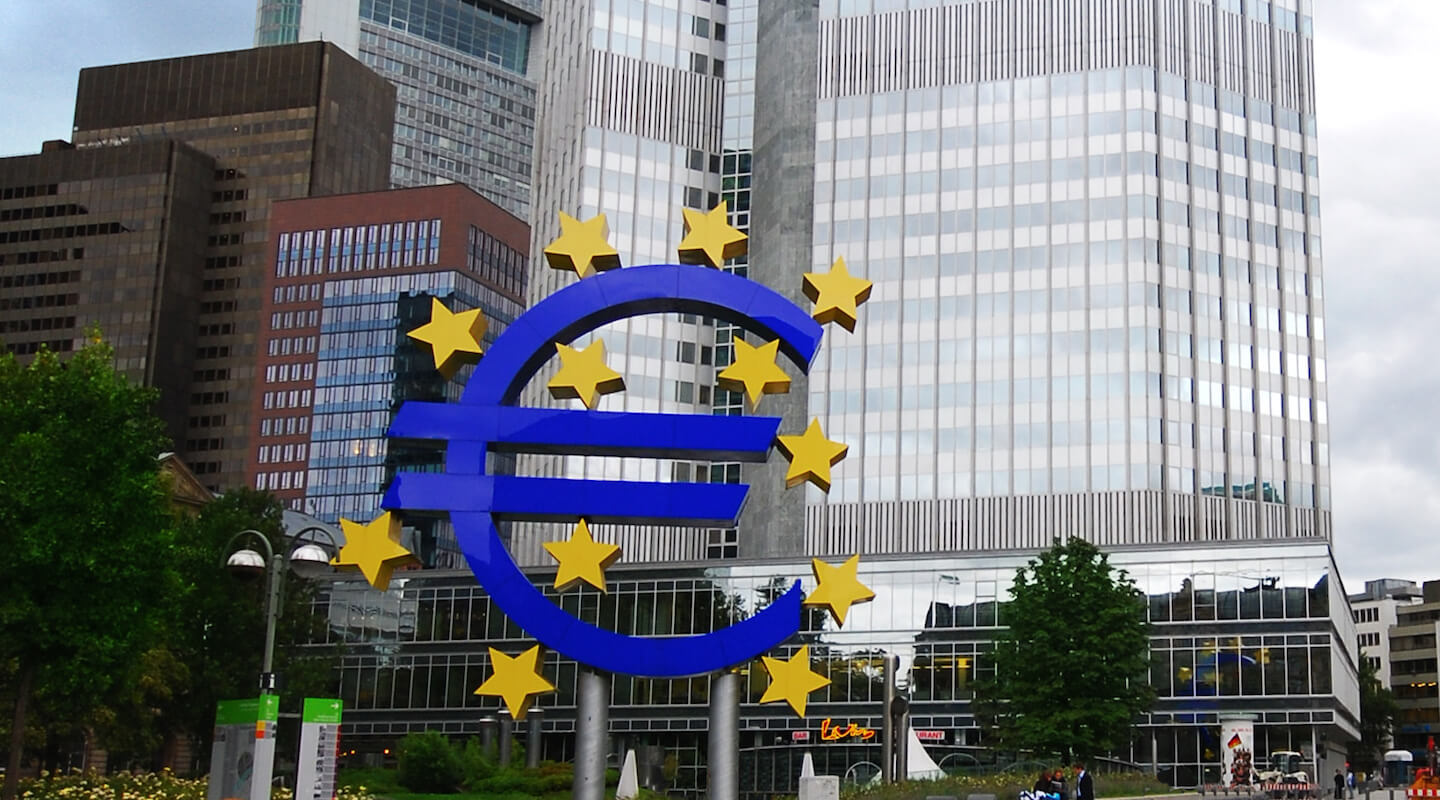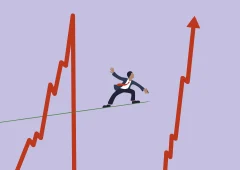ECB Signals Caution After Rate Cut as Euro Gains Ground
18.07.2024 21:00 1 min. read Alexander Stefanov
Traders bolstered the euro on Thursday amid signals from the European Central Bank (ECB) of cautious post-rate-cut plans, easing previous concerns over French political turmoil.
The ECB maintained its deposit rate at 3.75% after June’s cut from 4%, the first in five years, with President Christine Lagarde emphasizing flexibility in future rate decisions.
Federal Reserve Chair Jerome Powell’s confidence in U.S. inflation moderation temporarily boosted the euro over 2% against the dollar this month, recovering from June’s 1% dip. Market analysts noted reduced fears of French political risks and expected Fed rate cuts, softening the dollar against major currencies.
However, the euro faced challenges against the Swiss franc and sterling, with concerns over potential dollar strength if Donald Trump is re-elected due to proposed import tariffs impacting the eurozone.
Currency markets foresee more Fed rate cuts than ECB cuts by year-end, reflecting weakening dollar support. The dollar index dropped 2% in July, contributing to the euro’s recovery from June’s political instability in France and fiscal concerns in the eurozone.
While fears of a eurozone fiscal crisis have eased, lingering risks include global trade conflicts and Trump’s tariff threats, which could affect eurozone exports.
ECB President Lagarde highlighted these growth concerns amid a cautious approach to future rate adjustments. Analysts expect modest euro movements against the dollar, anticipating gradual ECB rate cuts ahead.
-
1
Billionaire Slams Meme Stock Hype and Sounds Alarm on U.S. Fiscal Health
15.06.2025 18:00 2 min. read -
2
Robert Kiyosaki Predicts 2025 “Super-Crash,” Urges Hoarding Gold, Silver, and Bitcoin
23.06.2025 13:31 2 min. read -
3
Nassim Taleb Says Global Trust Is Shifting from the Dollar to Gold
22.06.2025 17:00 1 min. read -
4
Billionaire Investor Sees Dollar Crash If Key Support Breaks
18.06.2025 15:00 1 min. read -
5
Geopolitical Shockwaves Hit Ethereum Hard While Bitcoin Stays Resilient
22.06.2025 16:21 1 min. read
Robert Kiyosaki Predicts When The Price of Silver Will Explode
Robert Kiyosaki, author of Rich Dad Poor Dad, has issued a bold prediction on silver, calling it the “best asymmetric buy” currently available.
U.S. PCE Inflation Rises for First Time Since February, Fed Rate Cut Likely Delayed
Fresh data on Personal Consumption Expenditures (PCE) — the Federal Reserve’s preferred inflation gauge — shows inflation ticked higher in May, potentially delaying the long-awaited Fed rate cut into September or later.
Trump Targets Powell as Fed Holds Rates: Who Could Replace Him?
Federal Reserve Chair Jerome Powell is once again under fire, this time facing renewed criticism from Donald Trump over the Fed’s decision to hold interest rates steady in June.
U.S. National Debt Surge Could Trigger a Major Crisis, Says Ray Dalio
Billionaire investor Ray Dalio has sounded the alarm over America’s soaring national debt, warning of a looming economic crisis if no action is taken.
-
1
Billionaire Slams Meme Stock Hype and Sounds Alarm on U.S. Fiscal Health
15.06.2025 18:00 2 min. read -
2
Robert Kiyosaki Predicts 2025 “Super-Crash,” Urges Hoarding Gold, Silver, and Bitcoin
23.06.2025 13:31 2 min. read -
3
Nassim Taleb Says Global Trust Is Shifting from the Dollar to Gold
22.06.2025 17:00 1 min. read -
4
Billionaire Investor Sees Dollar Crash If Key Support Breaks
18.06.2025 15:00 1 min. read -
5
Geopolitical Shockwaves Hit Ethereum Hard While Bitcoin Stays Resilient
22.06.2025 16:21 1 min. read


